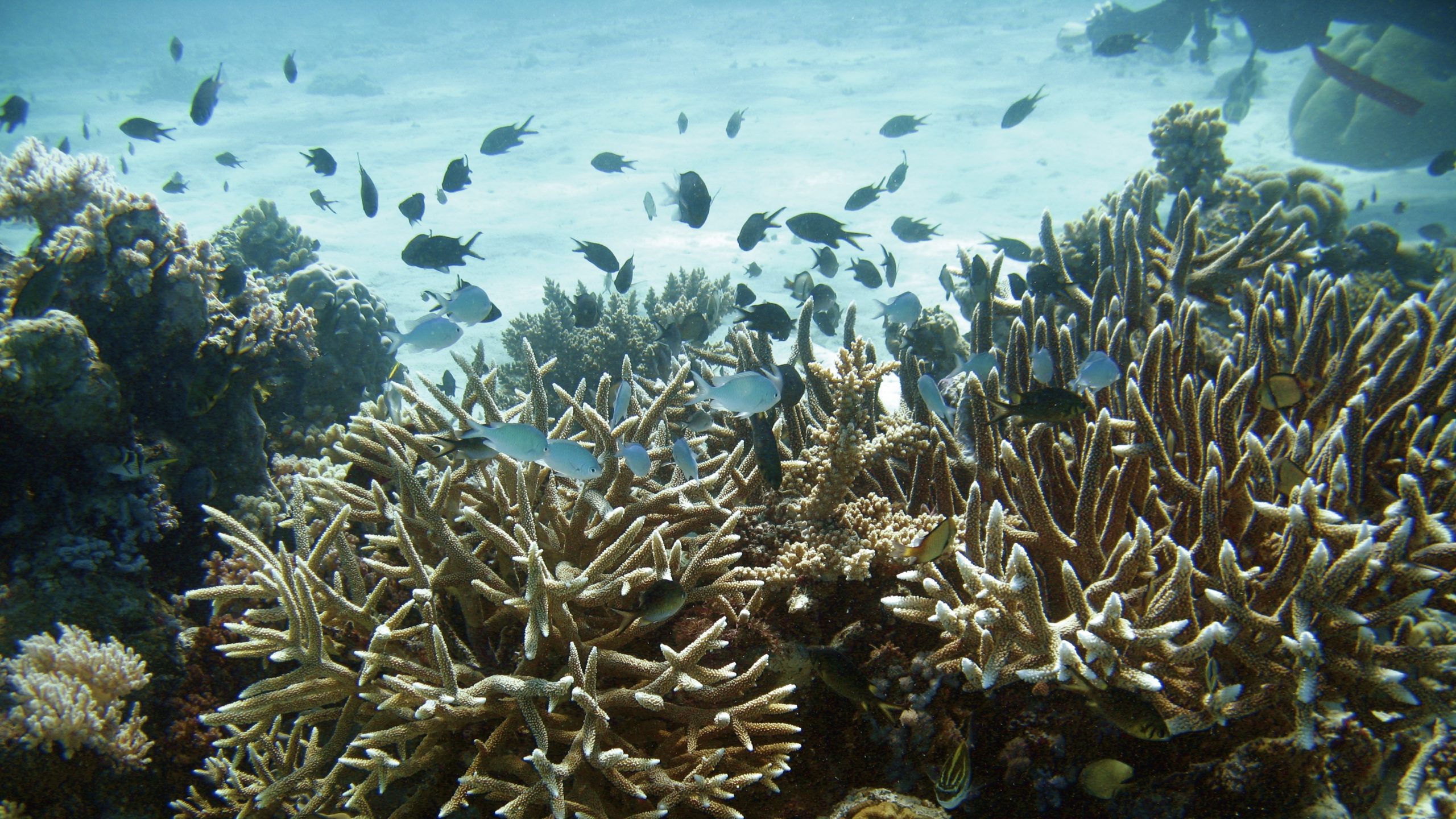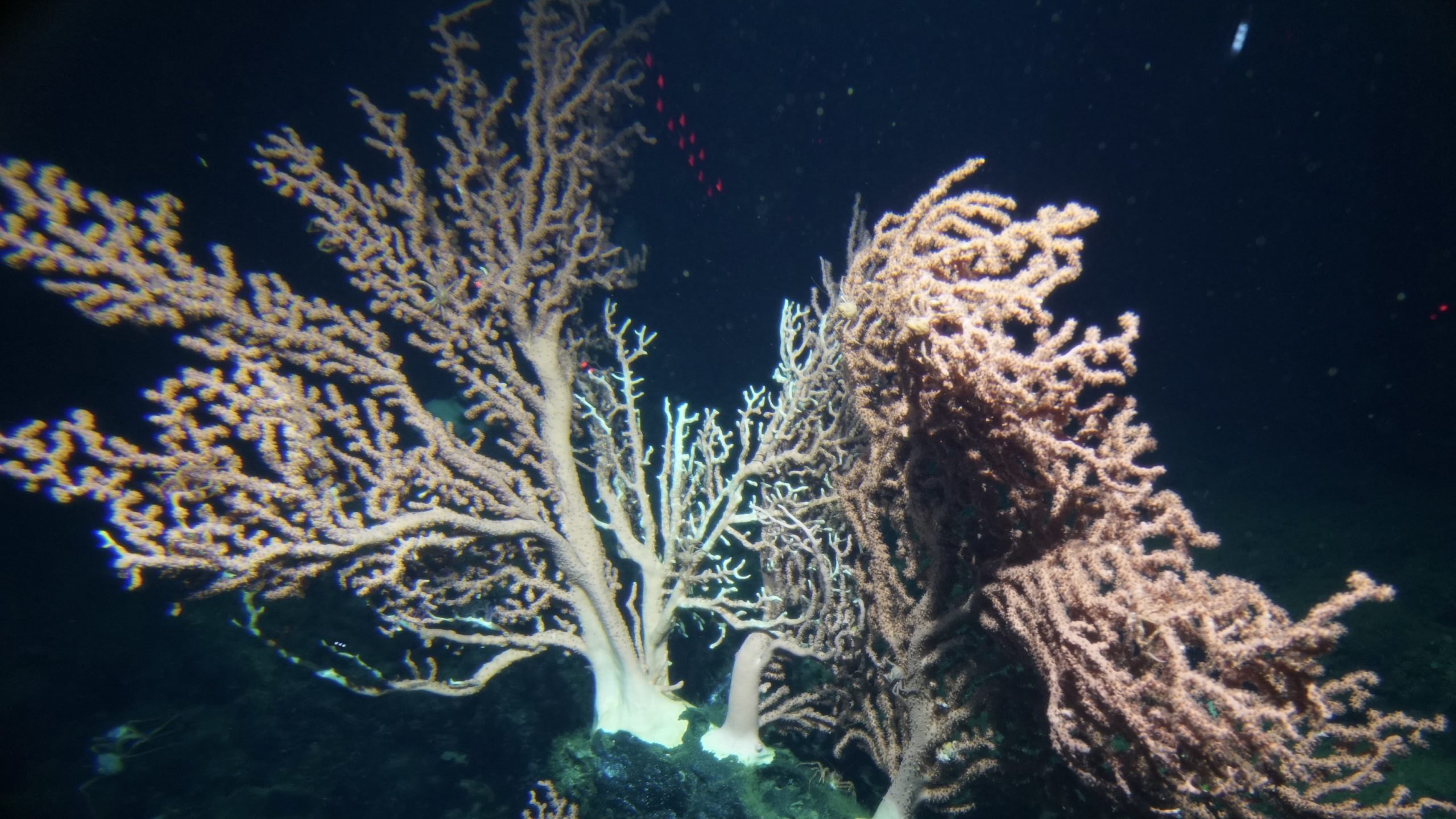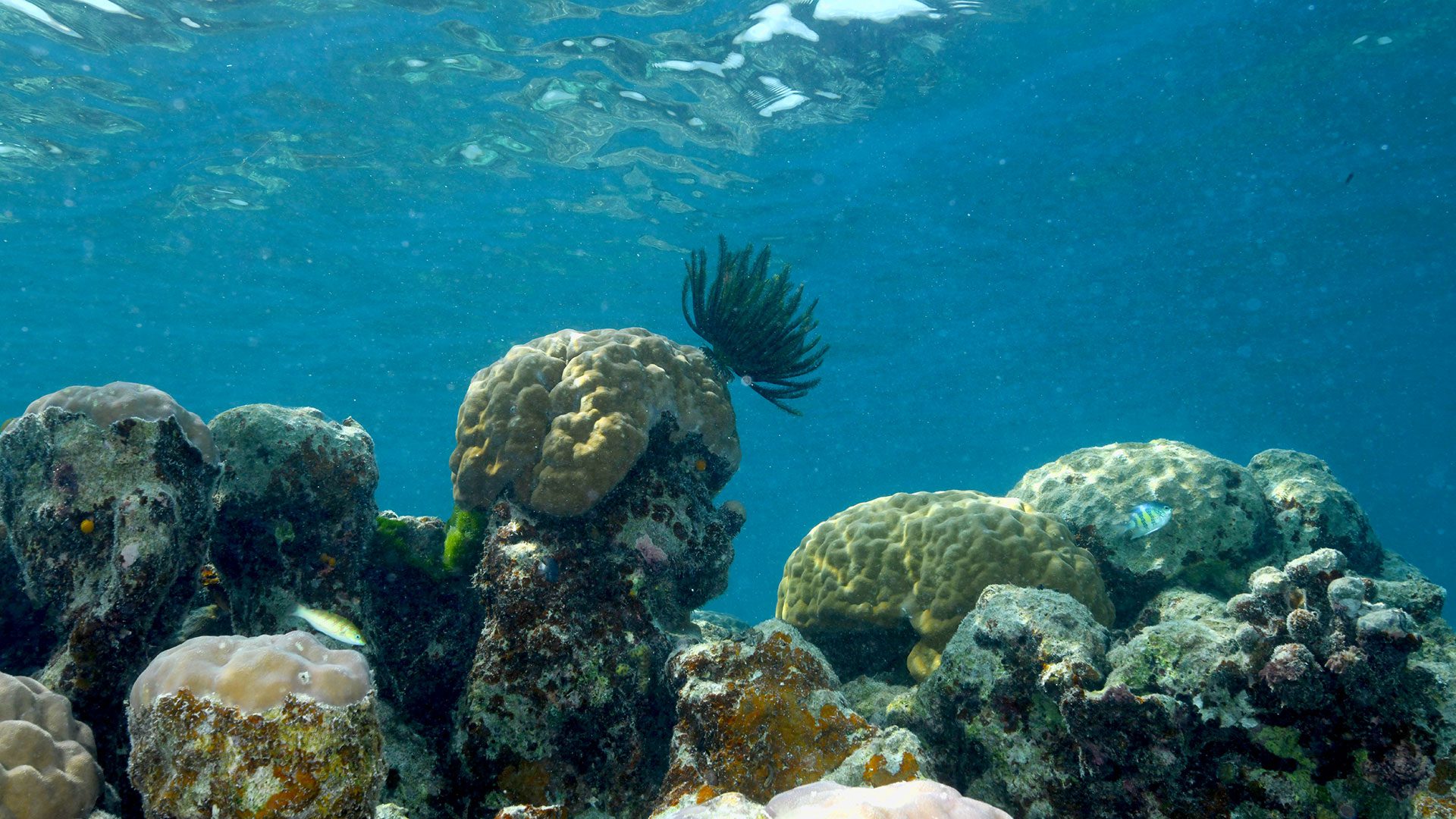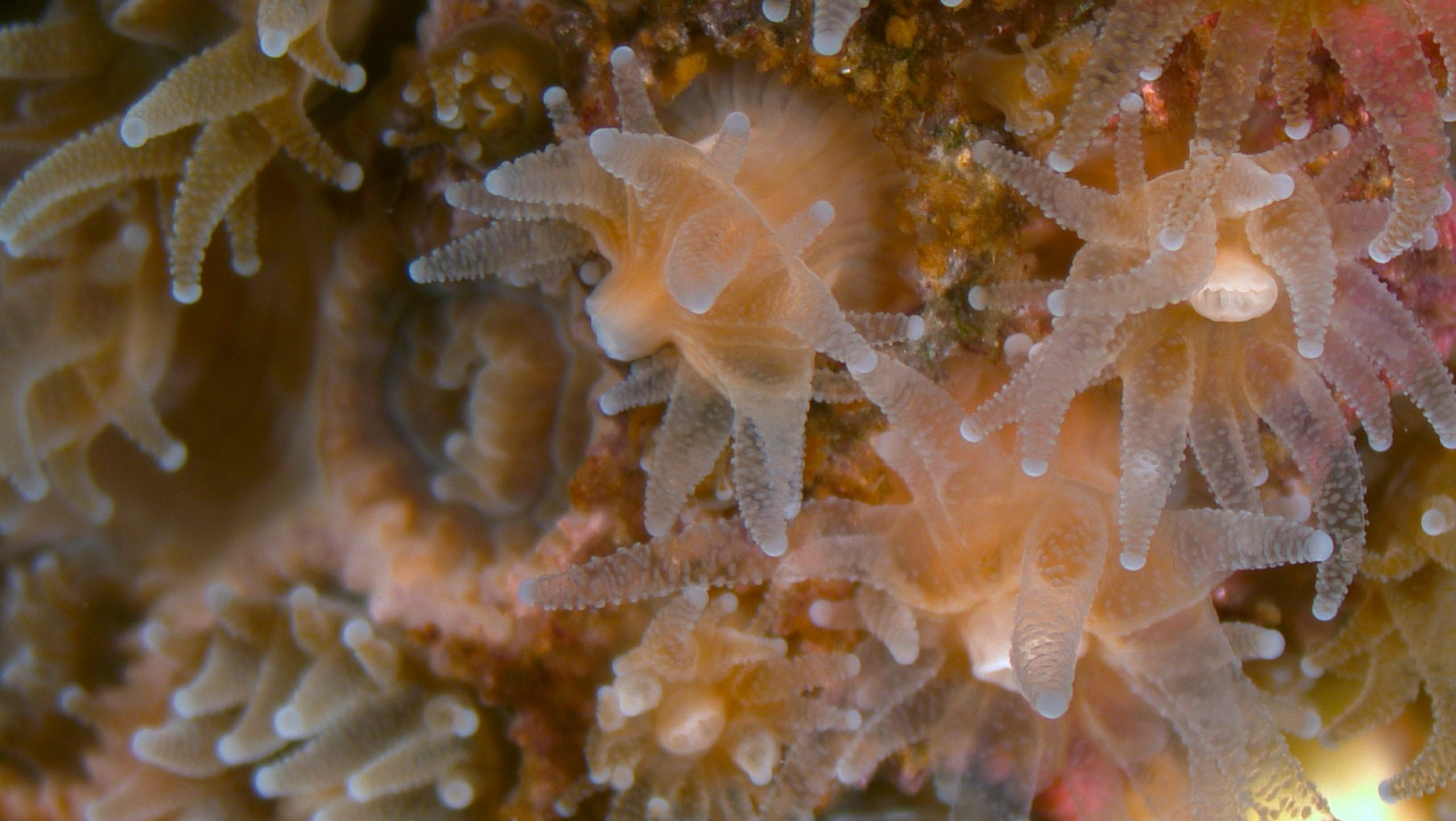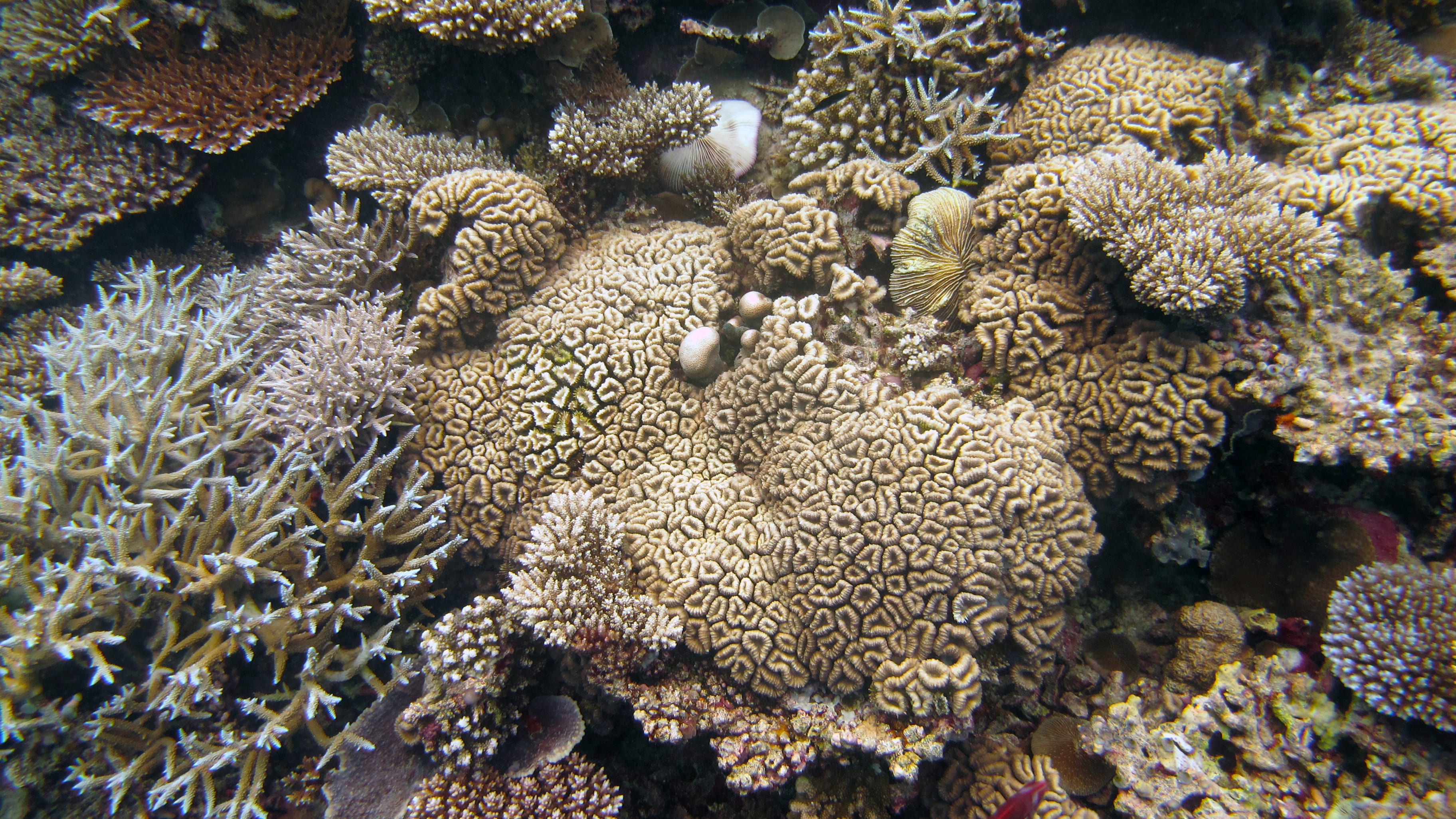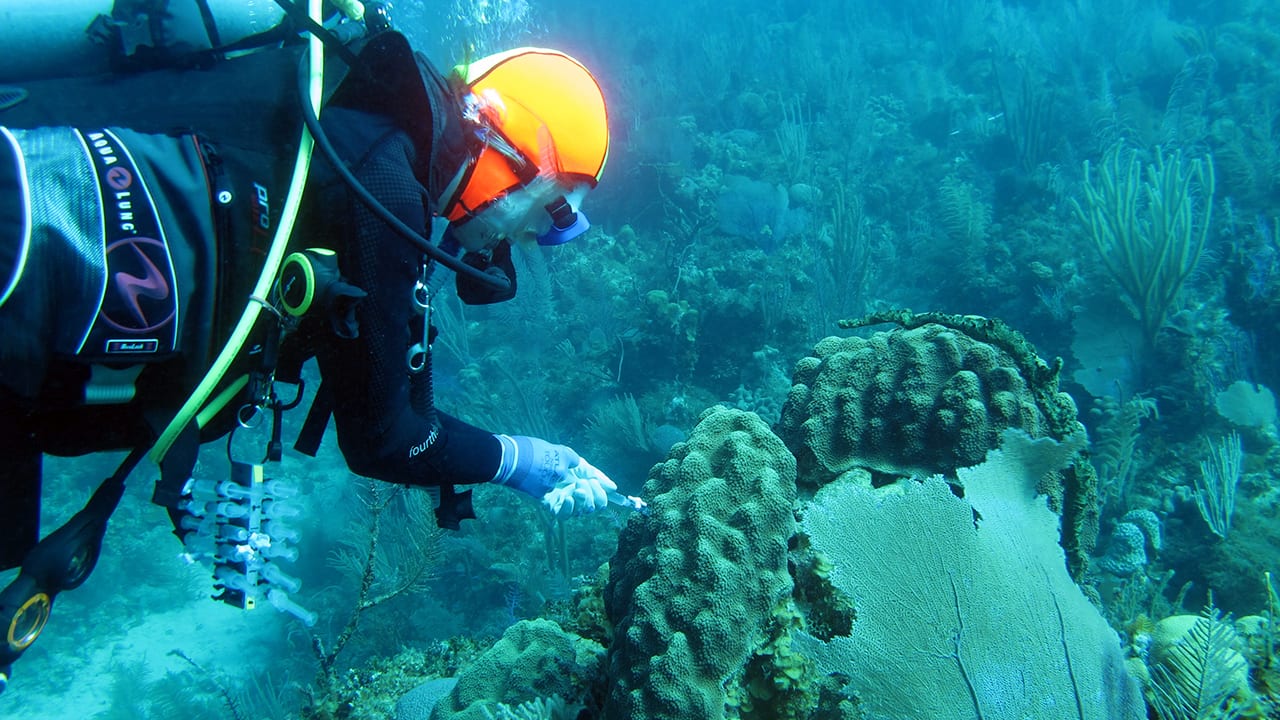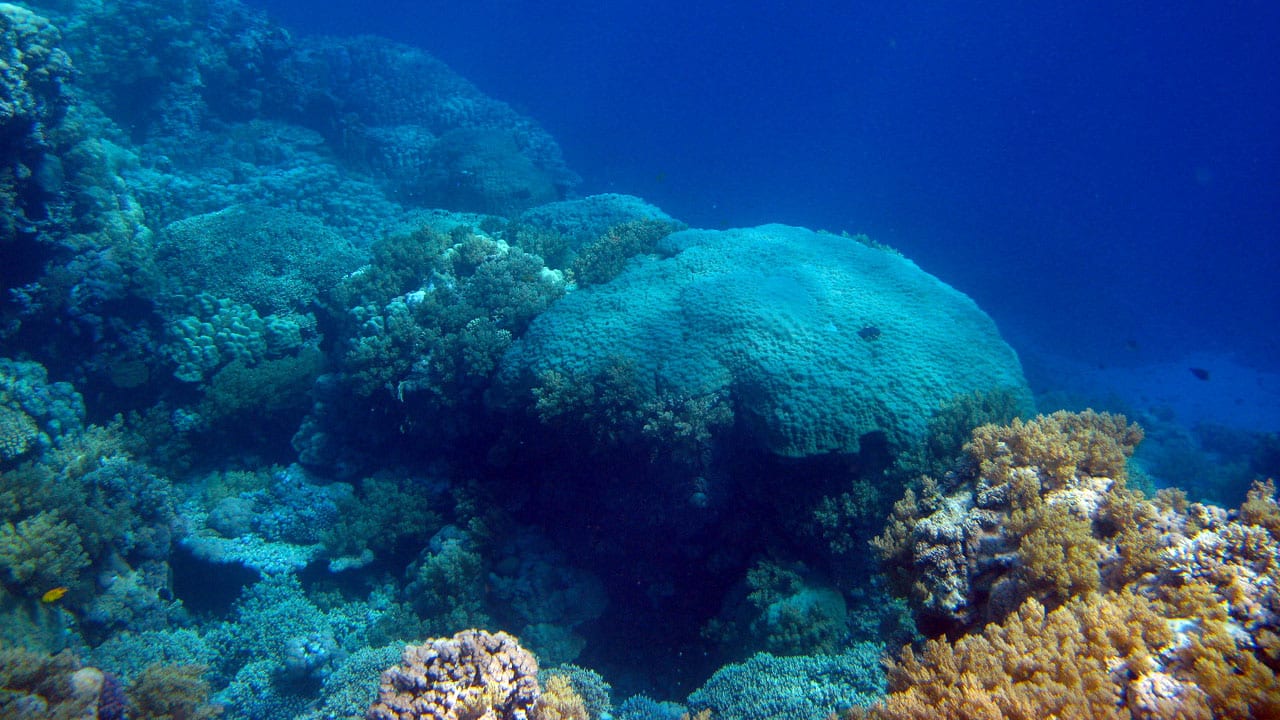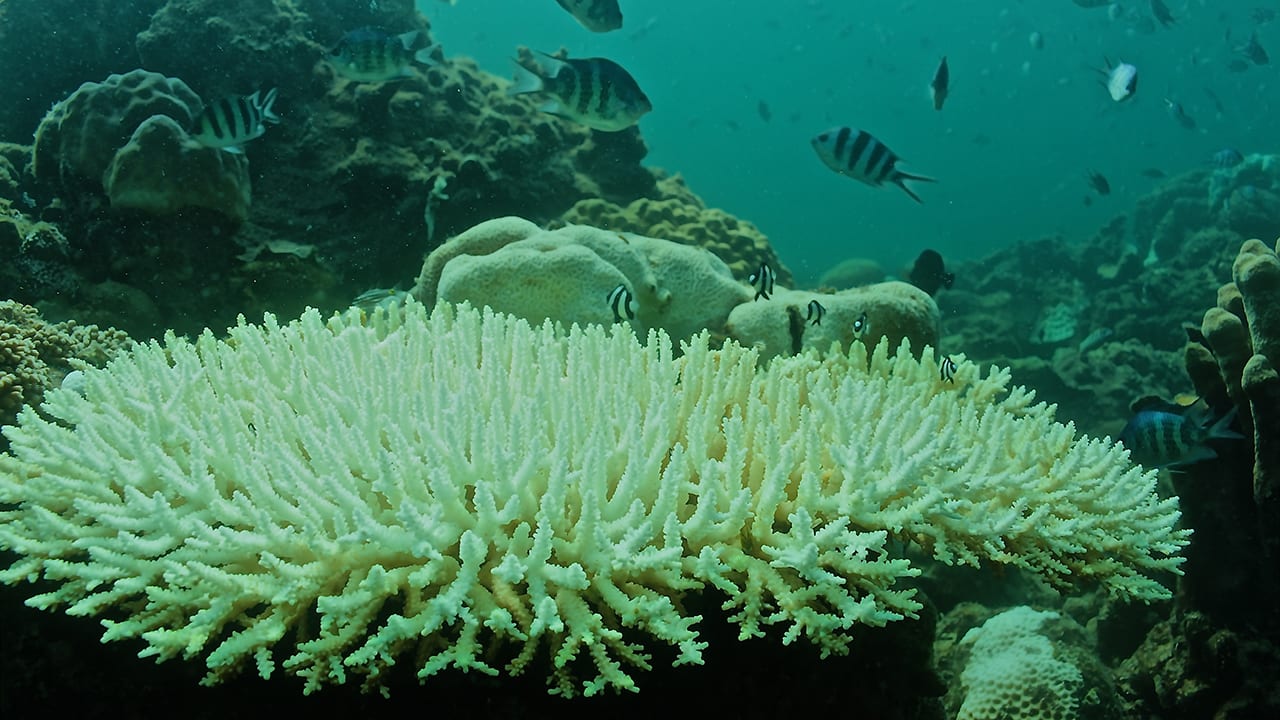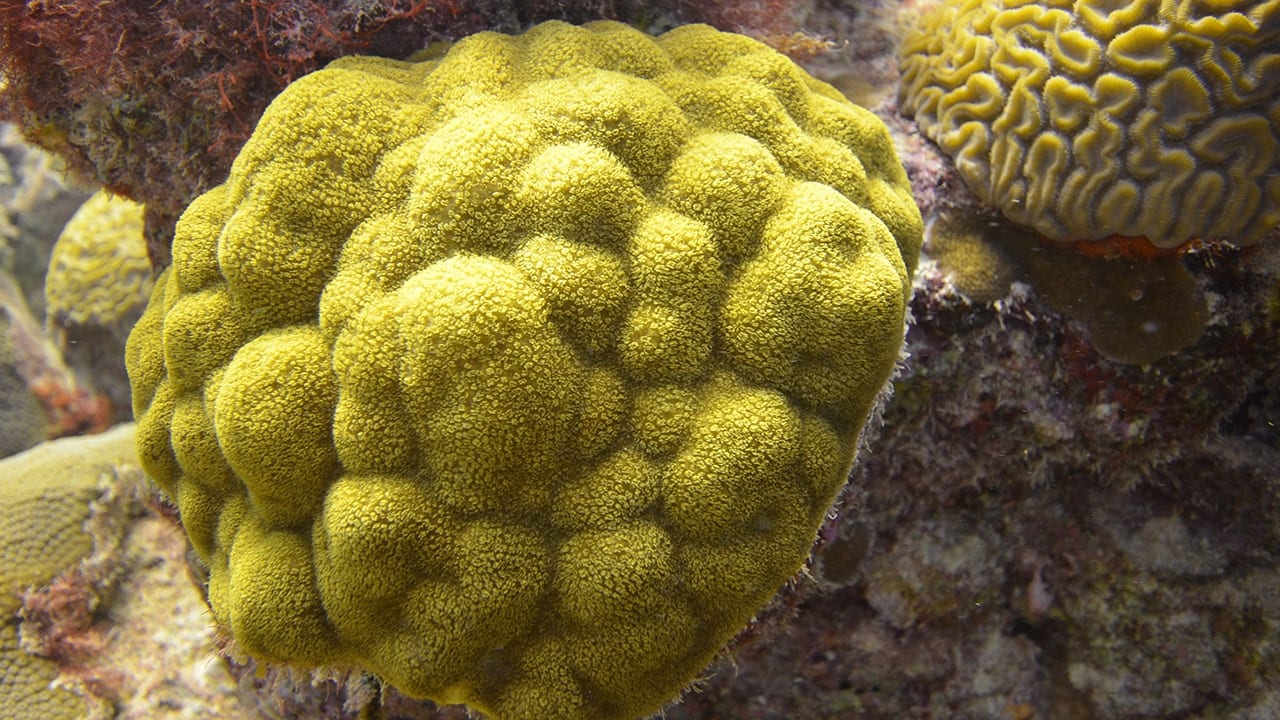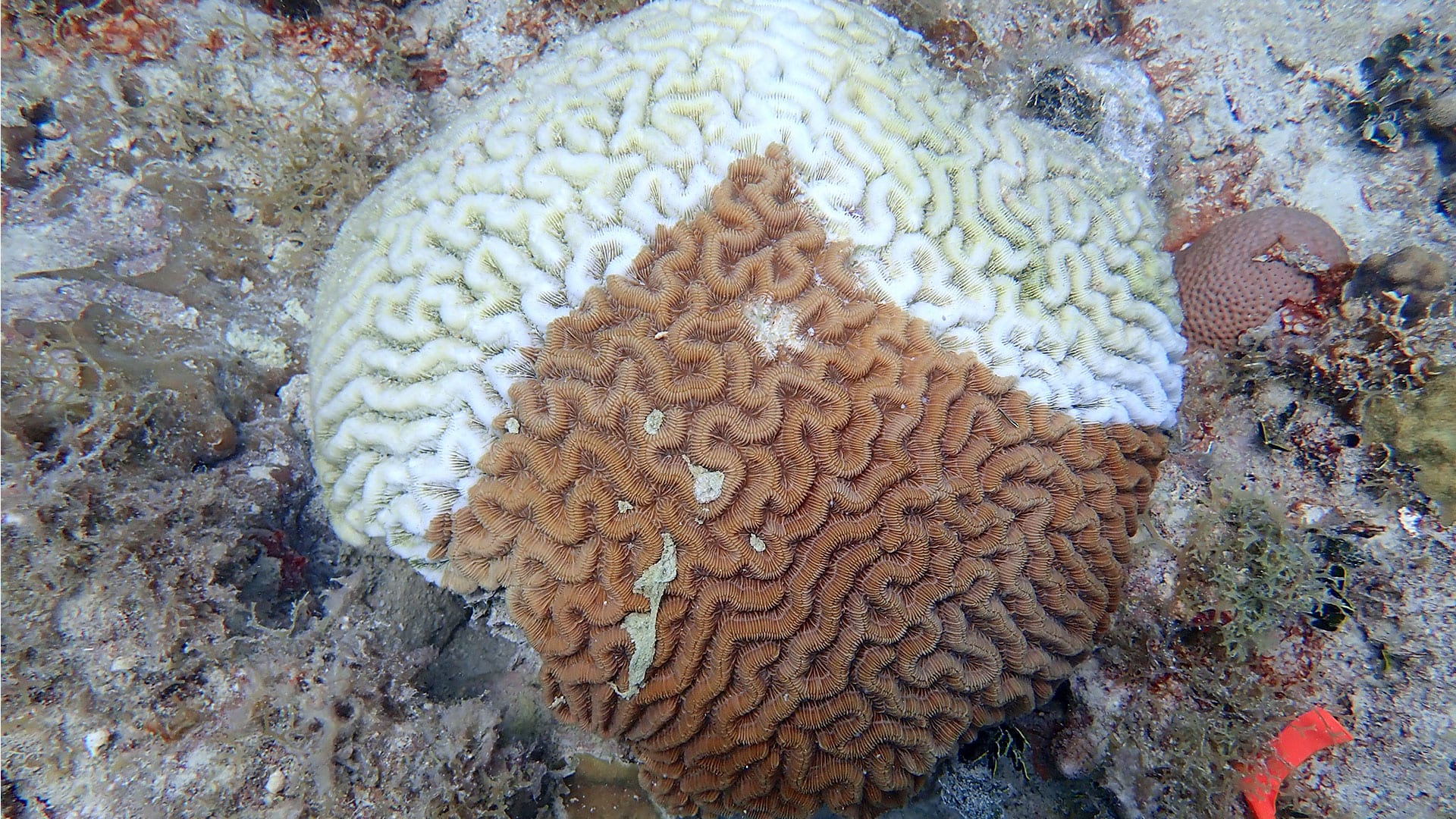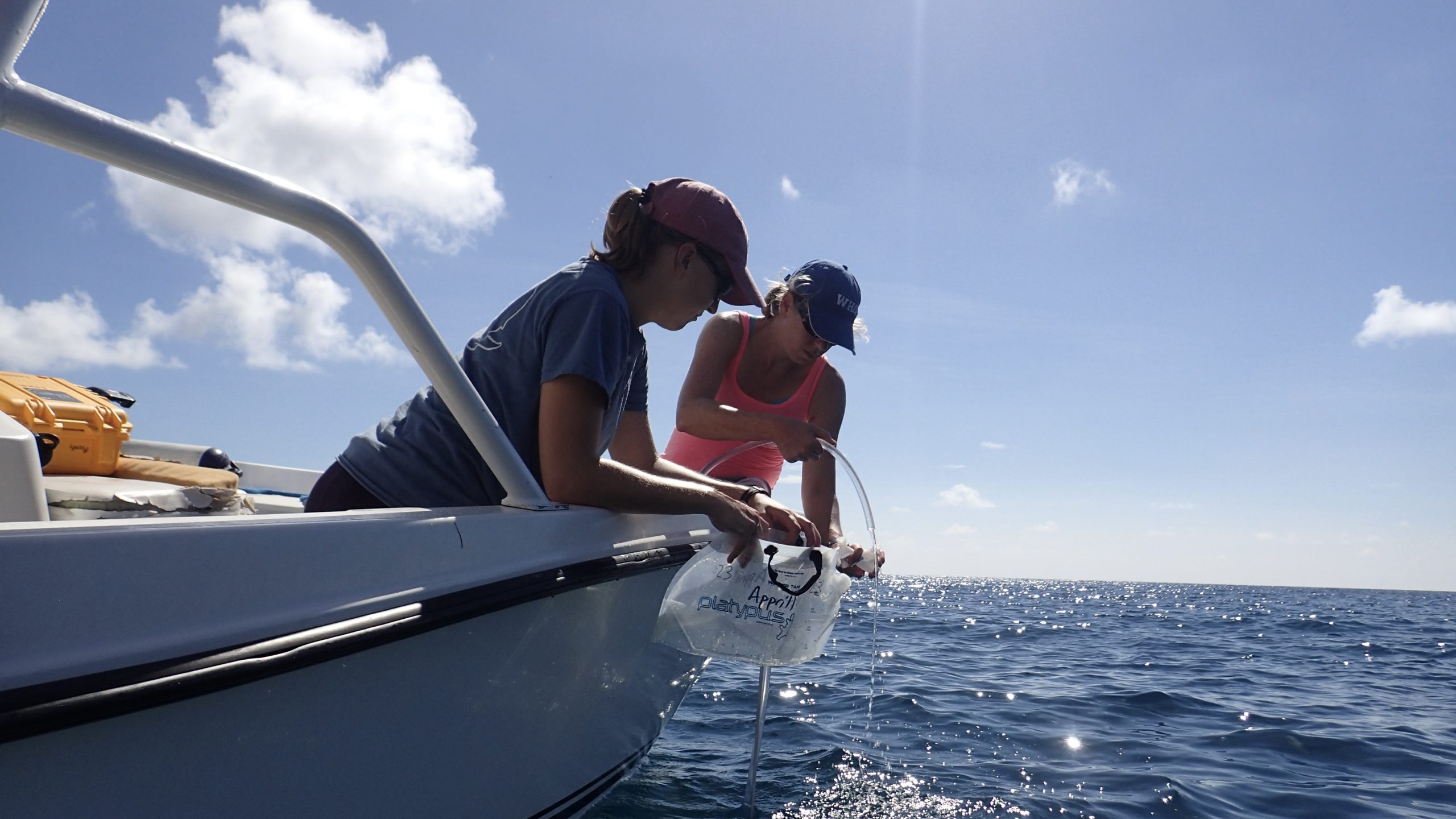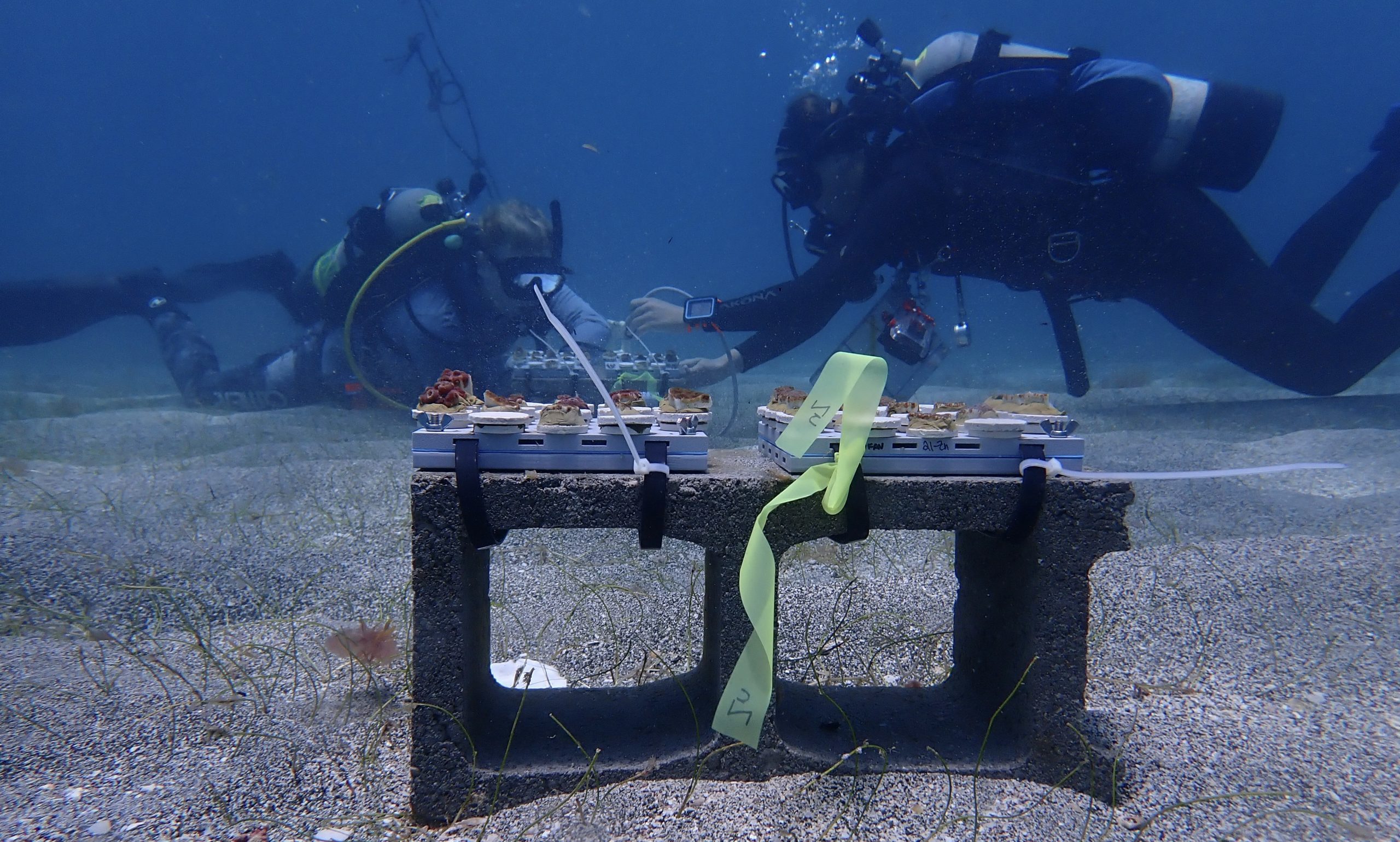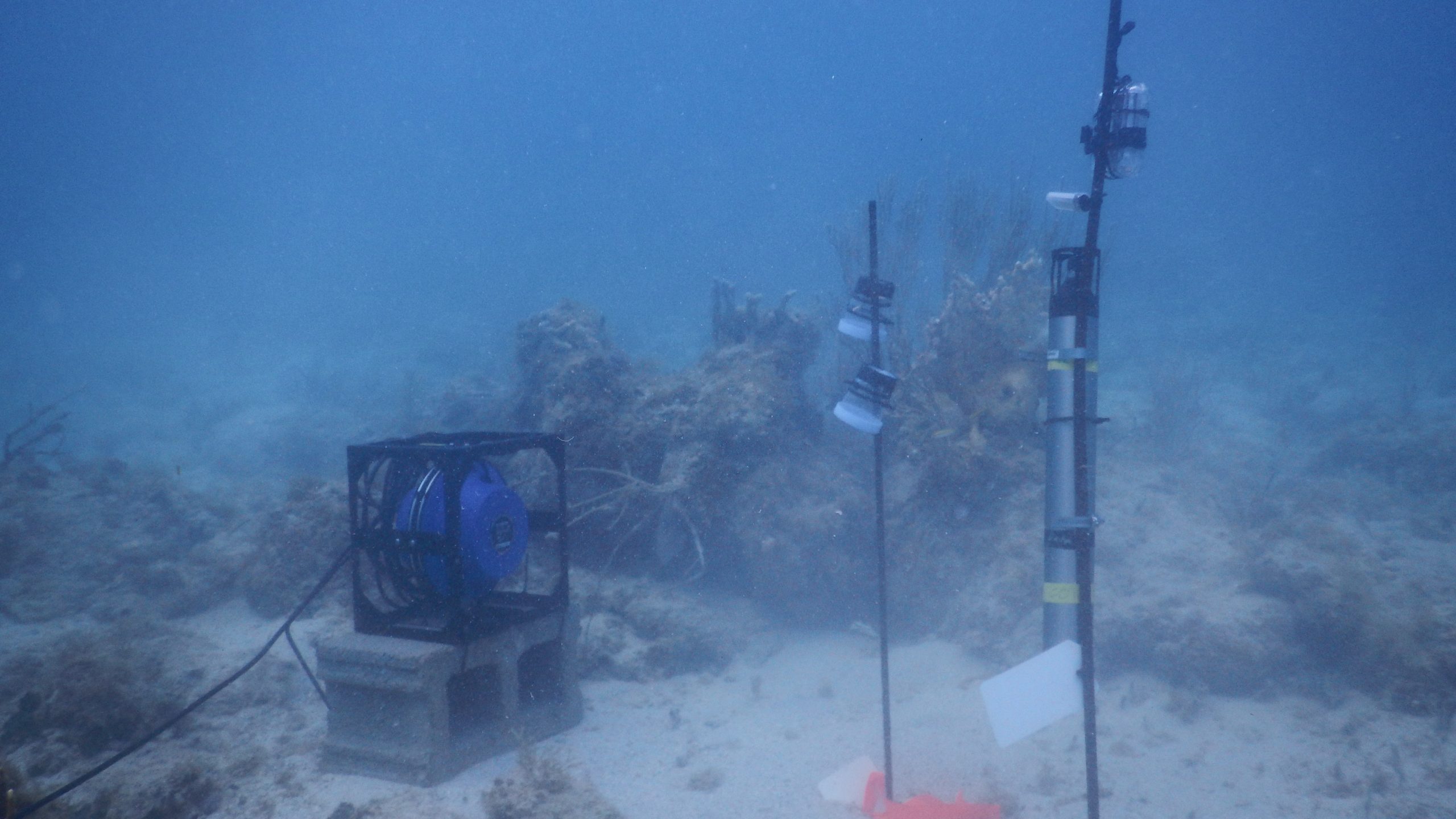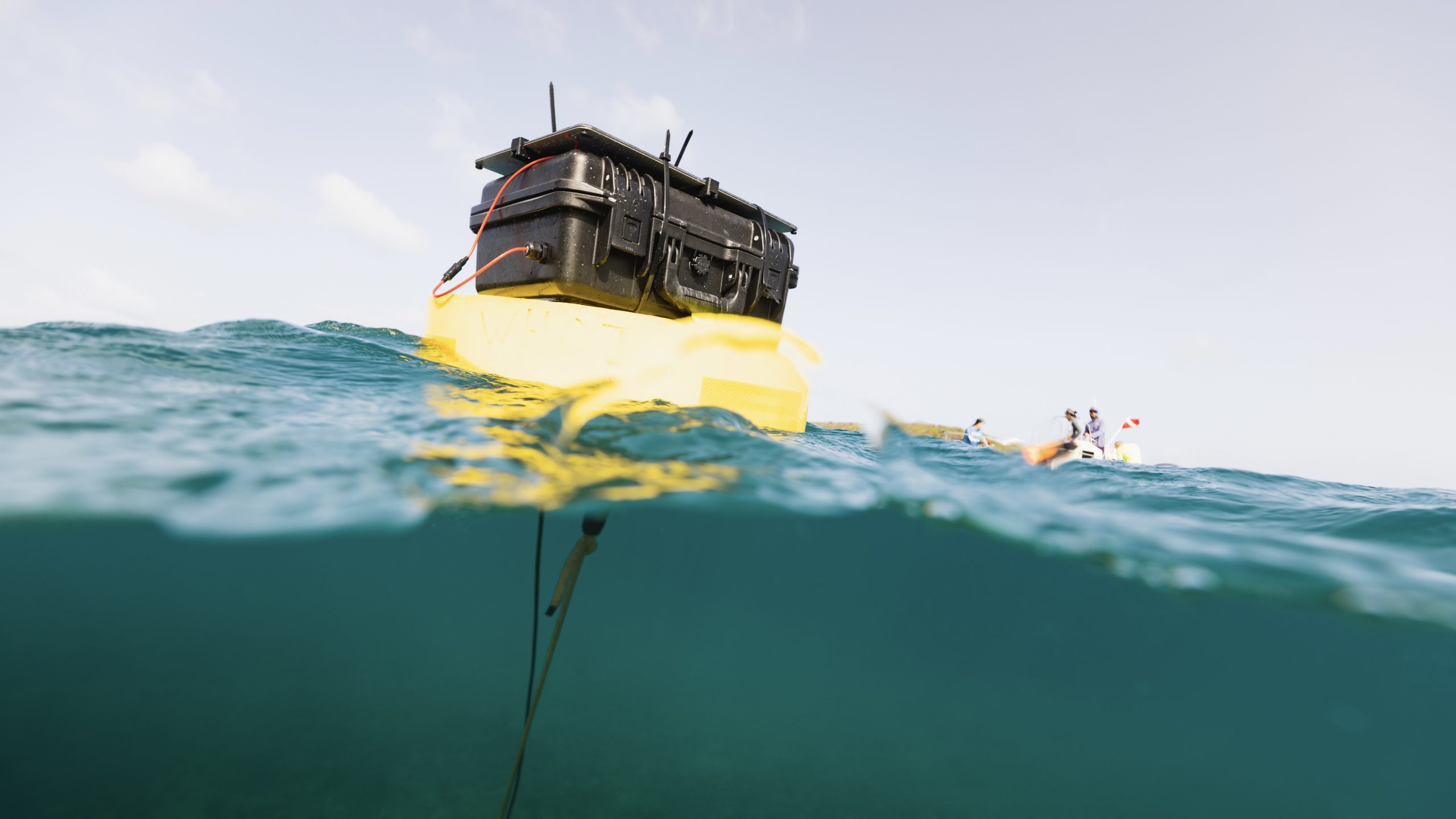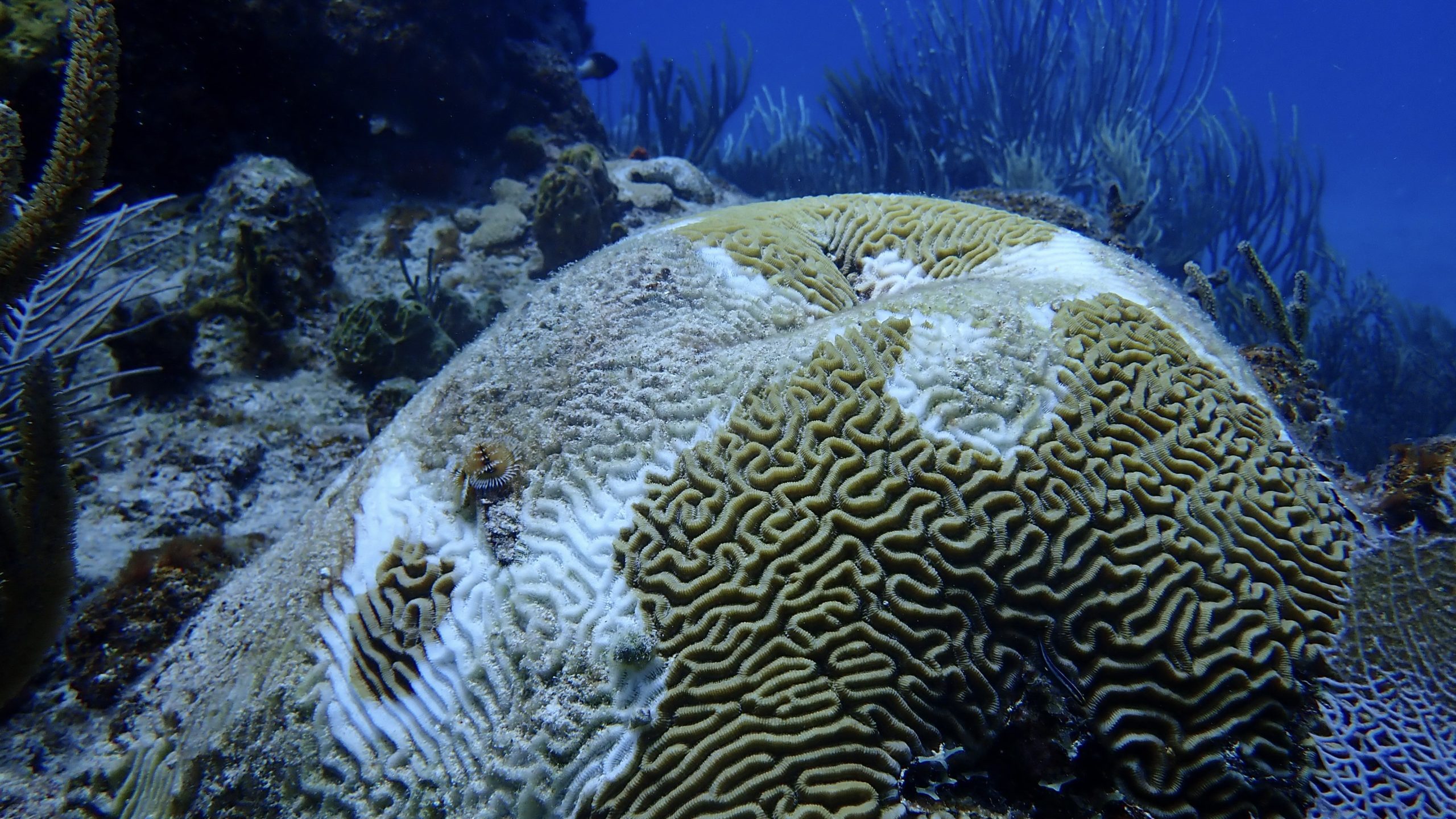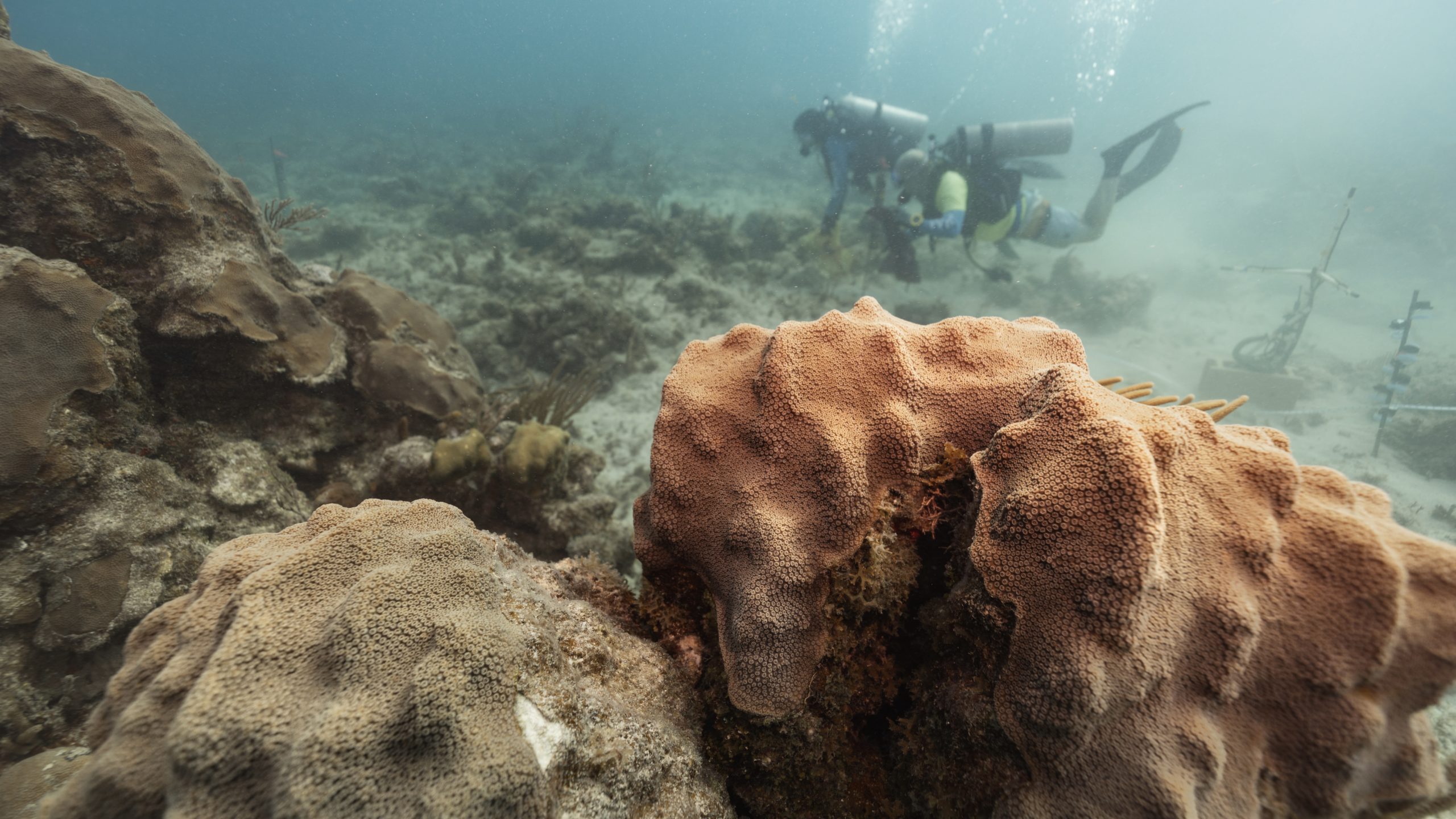News Releases
New study highlights the correlation between live corals and fishing yields
Research led by Woods Hole Oceanographic Institution predicts lower fishing yields as corals struggle to survive
Read MoreNew Study: Deep Sea Sensor Reveals That Corals Produce Reactive Oxygen Species
A new sensor on the submersible Alvin discovered reactive oxygen species for the first time in deep-sea corals, broadening our understanding of fundamental coral physiology Woods Hole, MA — Just…
Read MorePalau’s Rock Islands Harbor Heat-resistant Corals
Scientists studying reefs in Palau have identified subgroups of a coral species that exhibit remarkable tolerance to the extreme heat associated with marine heatwaves
Read MoreNorthern Star Coral Study Could Help Protect Tropical Corals
Worldwide, coral reefs are in crisis. Researchers at WHOI and Roger Williams University are finding that studying the recovery of this local New England species from a laboratory induced stressor could help better understand how to protect endangered tropical corals around the world.
Read MoreNew study measures how much of corals’ nutrition comes from hunting
A new study reveals that more of corals’ nutrients come from hunting than previously expected, information that may help predict the fate of coral reefs as global ocean temperatures rise.
Read MoreNew Study Finds Distinct Microbes Living Next to Corals
WHOI scientists distinct discover microbes living just a few centimeters from the surface of corals near the southern coast of Cuba. The discovery may yield clues about the ecological functions of microbes, and how they find and infect coral colonies.
Read MoreCorals in the Red Sea Offer Long-term View of South Asian Monsoon
Using chemical data from corals in the Red Sea, WHOI scientists reconstructed nearly three centuries of wind data that provided a definitive, natural record of the monsoon’s intensity. The finding, published online March 28 in the journal Geophysical Research Letters, show that monsoon winds have indeed increased over the past centuries.
Read MoreCorals Die as Global Warming Collides with Local Weather in the South China Sea
New research highlights the devastation caused when global-scale ocean warming interacts with short-lived weather anomalies, and adds urgency to the question of how reefs will fare through the end of this century.
Read MoreStudy Reveals Corals’ Influence on Reef Microbes
As they grow, corals are bathed in a sea of marine microbes, such as bacteria, algae, and viruses. While these extremely abundant and tiny microorganisms influence coral communities in a variety of ways, a new study by researchers at the Woods Hole Oceanographic Institution (WHOI), the Bermuda Institute of Ocean Sciences (BIOS) and University of California, Santa Barbara (UCSB) reveals that corals also have an impact on the microbes in waters surrounding them
Read MoreDiverse Corals Persist, But Bioerosion Escalates in Palau’s Low-pH Waters
As the ocean absorbs atmospheric carbon dioxide (CO2) released by the burning of fossil fuels, its chemistry is changing. The CO2 reacts with water molecules, lowering ocean pH in a process known as ocean acidification. This process also removes carbonate ions, an essential ingredient needed by corals and other organisms to build their skeletons and shells.
Read MoreCorals cozy up with bacterial buddies
Corals may let certain bacteria get under its skin, according to a new study by researchers at Woods Hole Oceanographic Institution (WHOI) and King Abdullah University of Science and Technology…
Read MorePacific Islands May Become Refuge for Corals in a Warming Climate, Study Finds
Scientists have predicted that ocean temperatures will rise in the equatorial Pacific by the end of the century, wreaking havoc on coral reef ecosystems. But a new study shows that climate change could cause ocean currents to operate in a surprising way and mitigate the warming near a handful of islands right on the equator. As a result these Pacific islands may become isolated refuges for corals and fish.
Read MoreCold Water Corals Conference to be Held in Woods Hole
On October 24, 2008, scientists from North America and Europe will meet at the Woods Hole Oceanographic Institution (WHOI) to develop the first coherent plan for studying and conserving cold-water…
Read MoreCaribbean Corals and Climate Change
Climate scientists are finding interesting clues to ancient climates in the corals of Honduras. During a trip earlier this month, they drilled cores from Montastrea (star corals) and Diploria (brain…
Read MoreSeawater microbes offer new, non-invasive way to detect coral disease, WHOI-led study finds
Coral reefs support more than 25 percent of all marine life and underpin the livelihoods of roughly one billion people globally.
Read MoreSeawater microbes are a powerful tool for diagnosing coral reef health and strengthening conservation efforts, according to new paper
Compared to taking visual observations of reef habitats, analyzing water microbes provides a more immediate picture of health.
Read MoreCould a multivitamin help save coral reefs? Preliminary data says yes
Scientists from Woods Hole Oceanographic Institution partner with the University of the Virgin Islands to create a resilient artificial reef
Read MoreWHOI researchers reinforce acoustic enhancement as a reef restoration method
Using successful techniques from an earlier study, acoustic enrichment continues to show promise
Read MoreNew funding will boost vital reef restoration work
Coral Research and Development Accelerator Program funding will advance acoustic enhancement research in the Caribbean
Read MoreSixty Years of Deep Ocean Research, Exploration, and Discovery with Human-Occupied Vehicle Alvin
In June 1964, the world’s first deep-diving submersible dedicated to scientific research was commissioned. What have we learned over the past 60 years?
Read MorePerkins School for the Blind Visit Woods Hole Oceanographic Institution
On Saturday, May 11, WHOI welcomed students from Perkins School for the Blind’s Outreach Program.
Read MoreWoods Hole Oceanographic Institution takes home four Communicator Awards
The Communicator Awards recognizes organizations committed to excellence, effectiveness, and innovation across all areas of communication.
Read MoreStudy: eDNA methods give a real-time look at coral reef health
Researchers from WHOI studied the microbes in coral reef water by examining eight reefs in the U.S. Virgin Islands over a period of seven years, which included periods of hurricane and coral disease disturbance.
Read MoreSonic Youth: Healthy Reef Sounds Increase Coral Settlement
Researchers at WHOI demonstrated that replaying healthy reef sounds could potentially be used to encourage coral larvae to recolonize damaged or degraded reefs.
Read More
